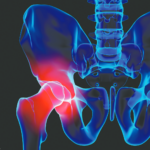Certain modifiable environmental factors, such as oral contraceptives use and crystalline silica exposure, are associated with an increased risk for systemic lupus erythematosus (SLE) in genetically susceptible individuals. However, the influence of alcohol use on SLE risk has not yet been determined, with conflicting results from previous studies. Alcohol is known to contain elements that suppress systemic inflammation and decrease the synthesis of proinflammatory cytokines, such as tumor necrosis factor, interleukin (IL) 6 and IL-8. And prior research has linked alcohol use to reduced risks for cardiovascular disease and rheumatoid arthritis.
To investigate a possible association between alcohol consumption and SLE, Medha Barbhaiya, MD, MPH, and colleagues from the Department of Medicine, Division of Rheumatology, Immunology and Allergy at the Brigham and Women’s Hospital conducted a prospective cohort analysis in women, hypothesizing that “long-term moderate alcohol consumption, compared with no alcohol consumption, is associated with decreased risk of SLE.” The results of their research were published in the March 2017 issue of Arthritis Care & Research.
Researchers analyzed information from 204,055 women participating in the Nurses’ Health Study (NHS) (1980–2012) and NHSII (1989–2011) cohorts. At baseline, all participants were free from connective tissue disease and provided information on their personal alcohol consumption. Further alcohol consumption was measured using semiquantitative food frequency questionnaires, which were completed every two to four years and included measurements for beer, wine and hard liquor.
The Results
“We found a robust inverse association between alcohol consumption and SLE risk,” write the authors in their discussion. “These analyses demonstrated a 39% reduction in SLE risk among women who consumed … approximately one-half drink per day.”
As a secondary analysis, researchers examined the effect of alcohol by beverage type. Participants who drank two or more servings of wine per week demonstrated a significantly reduced SLE risk ([95% CI 0.45–0.96], P<0.03 for trend) vs. non-wine drinkers. A similar, but weaker, trend toward an inverse association was also shown for those who consumed two or more servings of beer per week compared with non-beer drinkers (HR 0.71 [95% CI 0.42–1.20], P<0.19 for trend). However, no association was demonstrated between cumulative hard liquor consumption and SLE risk.
An inverse relationship between alcohol intake and SLE risk is “biologically possible,” according to the researchers. Despite the study’s implications for a reduced risk of SLE with moderate alcohol consumption, the authors conclude that potential benefits among pre- and postmenopausal women have to be weighed against possible health risks, specifically the increased risk for cancer even with light to moderate alcohol consumption.
